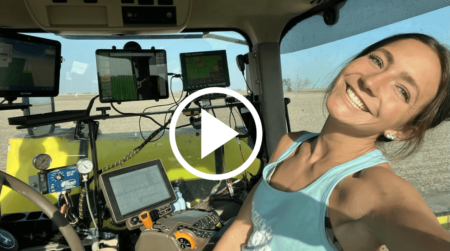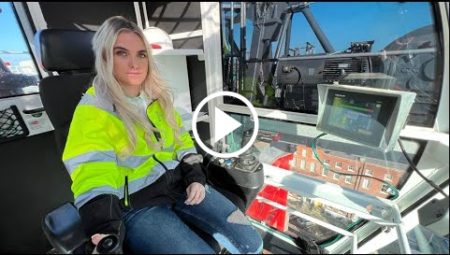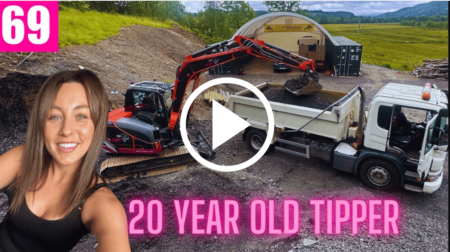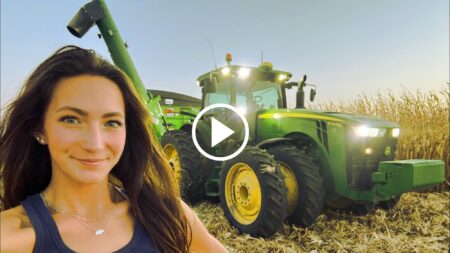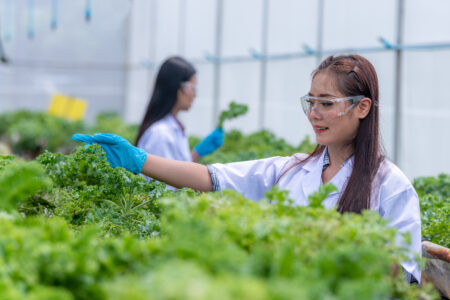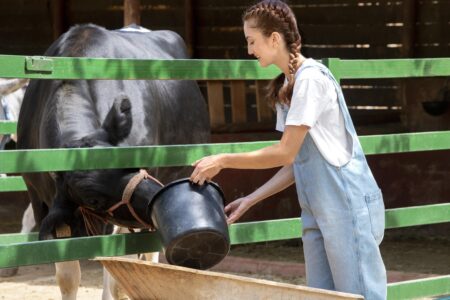Agriculture has been a fundamental aspect of human civilization for thousands of years. It has evolved significantly, with technological advancements playing a pivotal role in increasing productivity and efficiency. One such innovation is the John Deere S780 Combine, a cutting-edge agricultural machine that has transformed the way we harvest crops. In this comprehensive article, we will delve into the world of the John Deere S780 Combine, exploring its history, features, benefits, and impact on modern agriculture.
In this video, viewers get an in-depth look at the John Deere S780 Combine, a powerful and technologically advanced harvesting machine. The S780 boasts features such as the Combine Advisor package, which optimizes performance by adjusting settings in real-time, and a spacious, ergonomic cab designed for operator comfort. The video showcases the combine’s efficiency in handling various crops and field conditions, emphasizing its robust threshing and separating systems. Ideal for modern farming, the John Deere S780 ensures high productivity and reliability during the harvest season.
I. Evolution of Agricultural Machinery
Agriculture has come a long way from the days of manual labor and simple tools. The industrial revolution ushered in a new era of mechanization, with the development of machines that could perform tasks more efficiently and quickly. Among these machines, the combine harvester has been a game-changer.
A. Early Agricultural Machinery
- Hand Tools and Manual Labor: For centuries, agriculture relied on manual labor and basic hand tools, such as plows, sickles, and scythes. These tools required significant human effort and were not suited for large-scale farming.
- Mechanical Advancements: The 18th and 19th centuries saw the advent of more advanced agricultural machinery, like the reaper and the thresher, which helped increase productivity. However, these machines were limited in their capabilities.
B. The Birth of the Combine Harvester
- Cyrus McCormick: In the 1830s, Cyrus McCormick developed the first successful mechanical reaper, which significantly improved the efficiency of harvesting grain crops.
- The Combine Harvester Concept: The idea of a combine harvester, which could perform multiple harvesting tasks in one machine, began to take shape in the mid-19th century. Inventors like Hiram Moore and Hugh Victor McKay played crucial roles in its development.
II. John Deere: A Legacy of Innovation
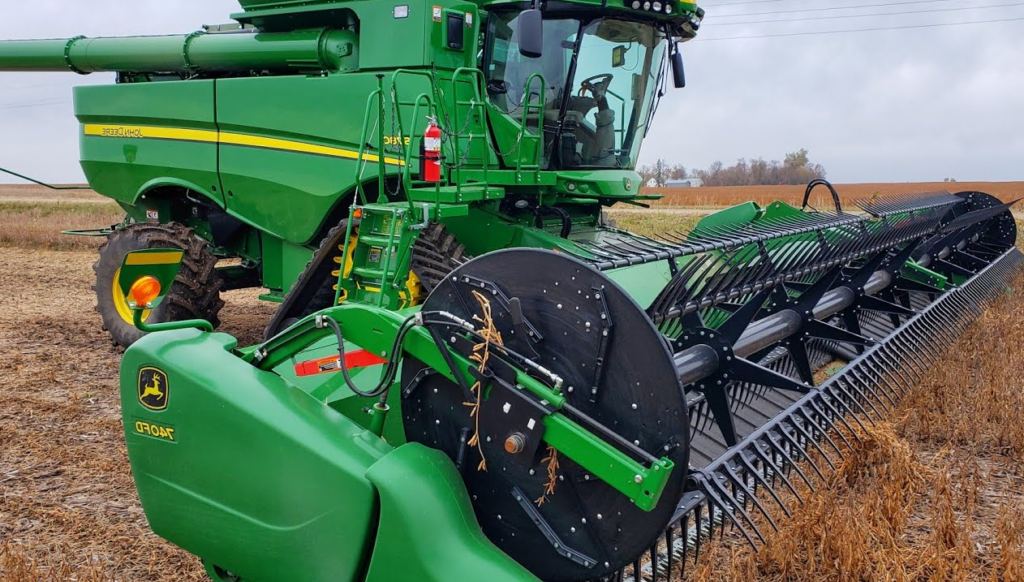
A. The John Deere Company
- Foundation and Early Years: John Deere, a blacksmith, founded the John Deere Company in 1837. The company initially manufactured plows and other agricultural tools.
- Commitment to Quality: John Deere’s commitment to producing high-quality, reliable equipment earned the company a reputation for excellence in the industry.
B. John Deere’s Contribution to Agricultural Machinery
- The Steel Plow: John Deere’s invention of the steel plow in 1837 revolutionized farming. It was more durable and effective than existing plows, making it easier to cultivate tough prairie soils.
- Expanding Product Line: Over the years, John Deere expanded its product line to include a wide range of agricultural equipment, including tractors, combines, and more.
III. The John Deere S780 Combine
A. Introduction to the S780 Combine
- The John Deere S780: The S780 is a flagship model in the John Deere combine harvester lineup. It represents the latest in cutting-edge agricultural technology and innovation.
- Key Features: The S780 is equipped with a range of advanced features and capabilities that make it a powerhouse in modern agriculture.
B. Notable Features and Specifications
- Engine Power: The S780 is powered by a high-performance engine that delivers ample horsepower to tackle even the most demanding harvesting conditions.
- Harvesting Capacity: With a large grain tank capacity, the S780 can harvest crops at an impressive rate, reducing downtime for unloading.
- Precision Agriculture: The S780 is equipped with GPS technology, allowing for precise tracking and data collection, enabling farmers to make data-driven decisions.
- Integrated Technology: Modern combines like the S780 feature advanced technology such as automated settings, yield monitoring, and remote diagnostics, making operations more efficient.
C. Advancements in Harvesting Technology
- Header Options: The S780 can be equipped with various header options, including draper headers and corn headers, making it versatile for different crops.
- Crop Management: The combine features technologies for separating grain from chaff and straw, ensuring minimal grain loss and high-quality output.
- Data Integration: The S780 can collect and analyze data during the harvesting process, providing valuable insights for optimizing farming practices.
IV. Benefits of the John Deere S780 Combine
A. Increased Efficiency
- Faster Harvesting: The S780’s high capacity and advanced features enable farmers to harvest more crops in less time.
- Reduced Labor Requirements: Modern combines are designed to minimize the need for manual labor during the harvesting process.
- Lower Operating Costs: The S780’s efficiency not only saves time but also reduces fuel and maintenance costs.
B. Improved Crop Quality
- Minimized Grain Loss: The S780’s technology ensures that a higher percentage of harvested grain reaches the grain tank, minimizing waste.
- Better Grain Quality: With precise settings and monitoring, the combine helps maintain the quality of the harvested grain.
C. Precision Farming
- Data-Driven Decision Making: The S780’s data collection and analysis capabilities provide farmers with valuable information for optimizing crop management.
- Reduced Environmental Impact: Precision agriculture practices can help reduce the environmental footprint of farming.
D. Versatility
- Multi-Crop Capabilities: The S780 is designed to handle a variety of crops, making it suitable for diverse farming operations.
- Seasonal Adaptability: Its advanced features make it adaptable to different weather conditions and crop types, ensuring year-round productivity.
V. Impact on Modern Agriculture
A. Increased Productivity
- The S780 and other modern combines have significantly increased the productivity of farms, allowing for larger-scale agricultural operations.
- Global Food Security: Enhanced productivity in agriculture is vital for addressing global food security challenges.
B. Technological Advancements
- Spillover Effects: Technological innovations in combines like the S780 have had spillover effects in other areas of agriculture, leading to advancements in precision agriculture and farm management.
C. Sustainability
- Efficient Resource Use: The precision and efficiency of modern combines help reduce resource waste, contributing to more sustainable farming practices.
- Conservation Tillage: Modern combines can also promote conservation tillage practices, which help prevent soil erosion and improve soil health.
VI. Challenges and Considerations
A. Cost of Investment
- Modern combines like the S780 can be a significant financial investment, and smaller farmers may find it challenging to afford them.
- Operating Costs: While modern combines are more efficient, their maintenance and repair costs can be relatively high.
B. Skills and Training
- Farmers need to acquire the necessary skills and training to operate and maintain advanced machinery like the S780 effectively.
- Adoption Barriers: Some farmers may be resistant to change or hesitant to invest in technology due to a lack of expertise.
C. Environmental Concerns
- While modern combines have many benefits, they are also associated with environmental concerns, such as fuel consumption and emissions.
- Mitigation Measures: Manufacturers like John Deere are working on developing environmentally friendly technologies and practices.
VII. Future of Agricultural Machinery
A. Continued Technological Advancements
- The future of agricultural machinery will likely see further integration of technology, automation, and artificial intelligence to enhance productivity and sustainability.
- Smarter Machinery: Smart farming equipment, including combines, will be capable of autonomous operation and data-driven decision-making.
B. Sustainable Agriculture
- The development of more environmentally friendly farming practices and machinery will play a crucial role in ensuring the long-term sustainability of agriculture







